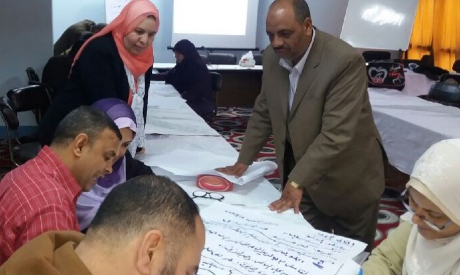
(Photo: courtesy of UNESCO)
The UN Educational, Scientific and Cultural Organization (UNESCO) has announced that Egypt made a progress in adult learning and education, noting that the government had cooperated with several civil society organizations and telecommunications' companies to fund projects in this area.
In its fourth Global Report on Adult Learning and Education released on Thursday, UNESCO said the labour force participation rate for women is particularly low in the Middle East, North Africa and South Asia.
“Neglecting disparities in labour force participation comes with high economic and social costs. As an example, it is estimated that if women in the United Arab Emirates and Egypt were to participate in the labour force to the same extent as men, GDP would rise by an estimated 12% and 34% respectively,” the report added.
In the literature, there is growing awareness that strengthening women's core rights, including education and participation in the labour market, is a way to improve their situation, it said.
The report shed light on learning and earning in Cairo’s Garbage City that was developed by an Egyptian non-governmental organization to offer children and young people working in particularly hazardous conditions alternative and safe work environments related to their skills and experience through programmes, projects and activities focused on the environmental and educational aspects of maintaining a business and increasing income.
The programme is designed to be flexible, to adapt to the special circumstances in which young boys in Cairo’s traditional garbage collecting communities, the Zabaleen, find themselves, the report said.
The report revealed that disadvantaged groups – adults with disabilities, older adults, refugees and migrants, and minority groups participate less in adult learning and education in many countries.
The aim of the Global Report on Adult Learning and Education (GRALE) is to deepen knowledge of adult learning and education (ALE) as a key component of lifelong learning across the globe, in order to improve education policies, concepts and practice within the framework of the United Nations’ 2030 Agenda for Sustainable Development.
Looking ahead, the report stresses the need to increase national investment in ALE, reduce participation costs, raise awareness of benefits and improve data collection and monitoring, particularly for disadvantaged groups.
In addition, by ensuring that donor countries respect their aid obligations to developing countries, ALE can be made a key lever in empowering and enabling adults, as learners, workers, parents, and active citizens, according to the report.
Short link: